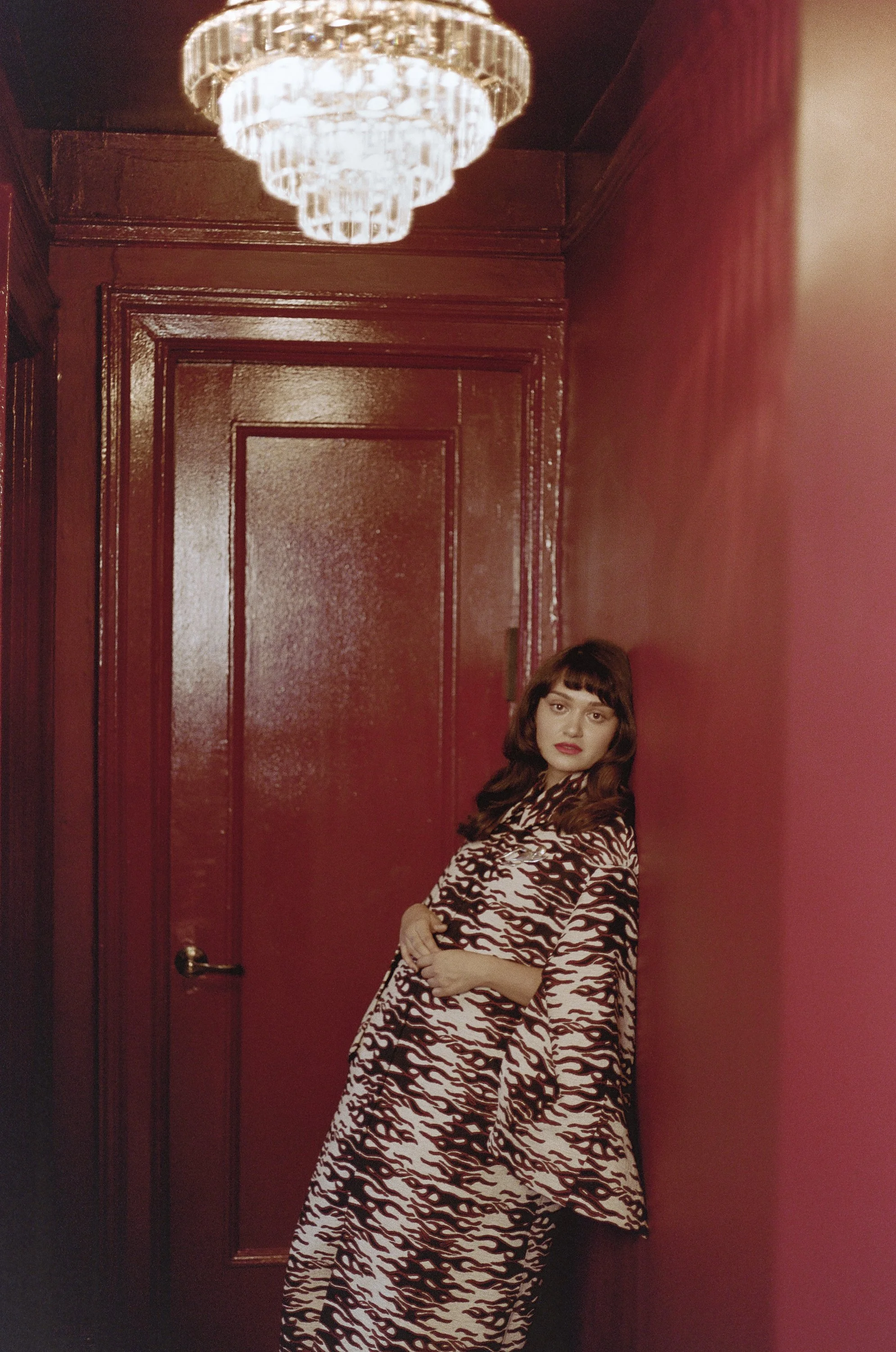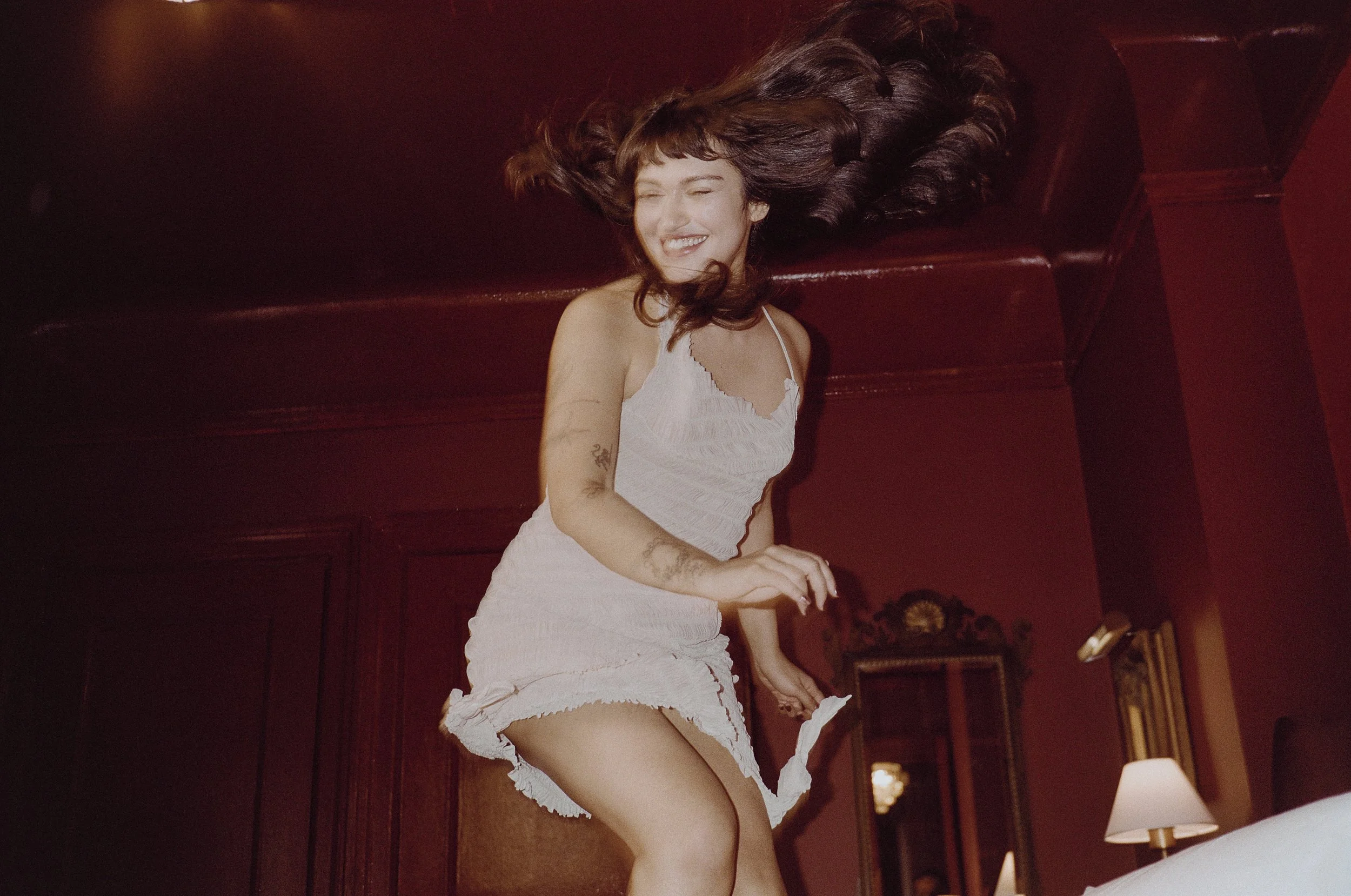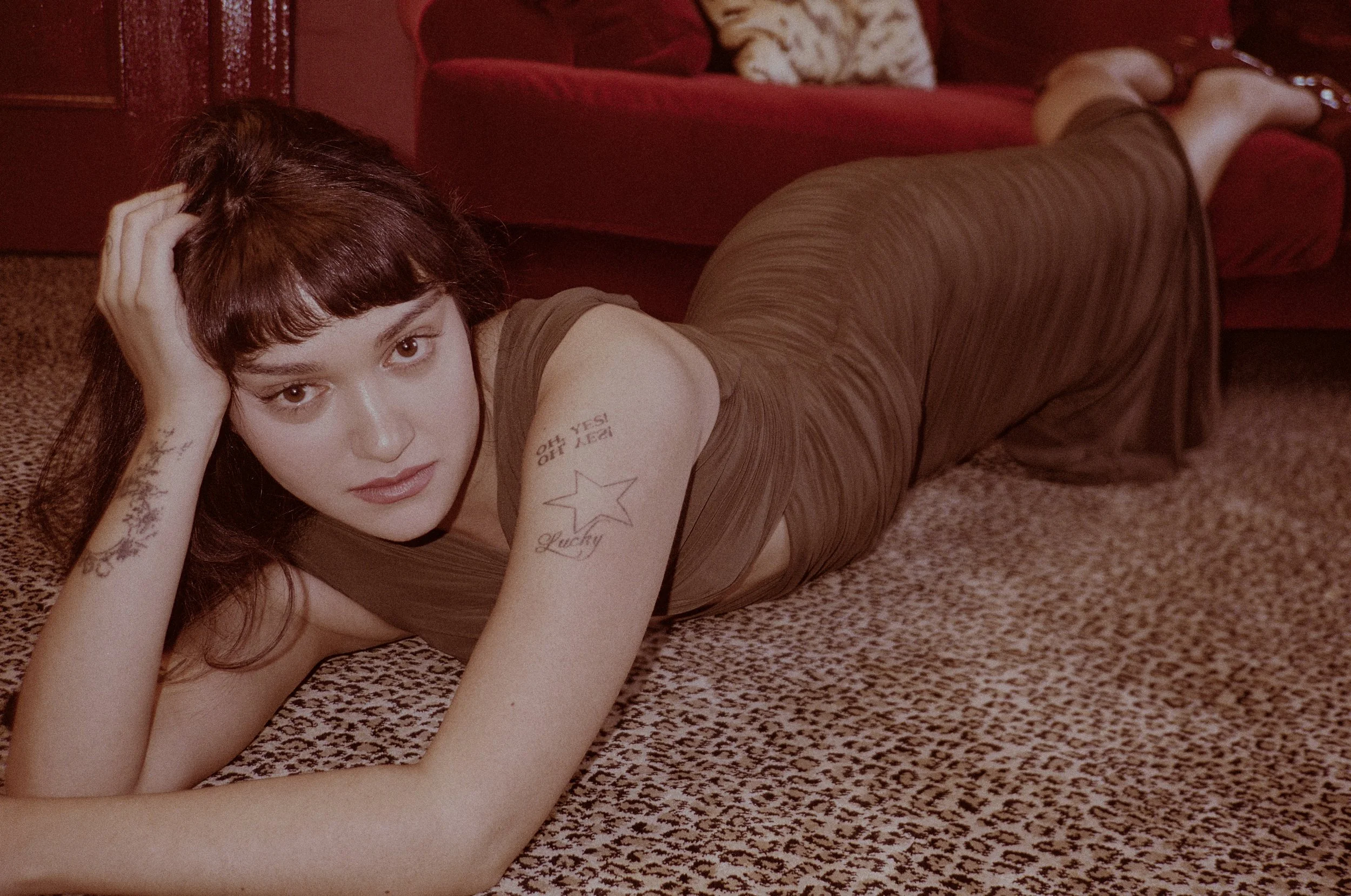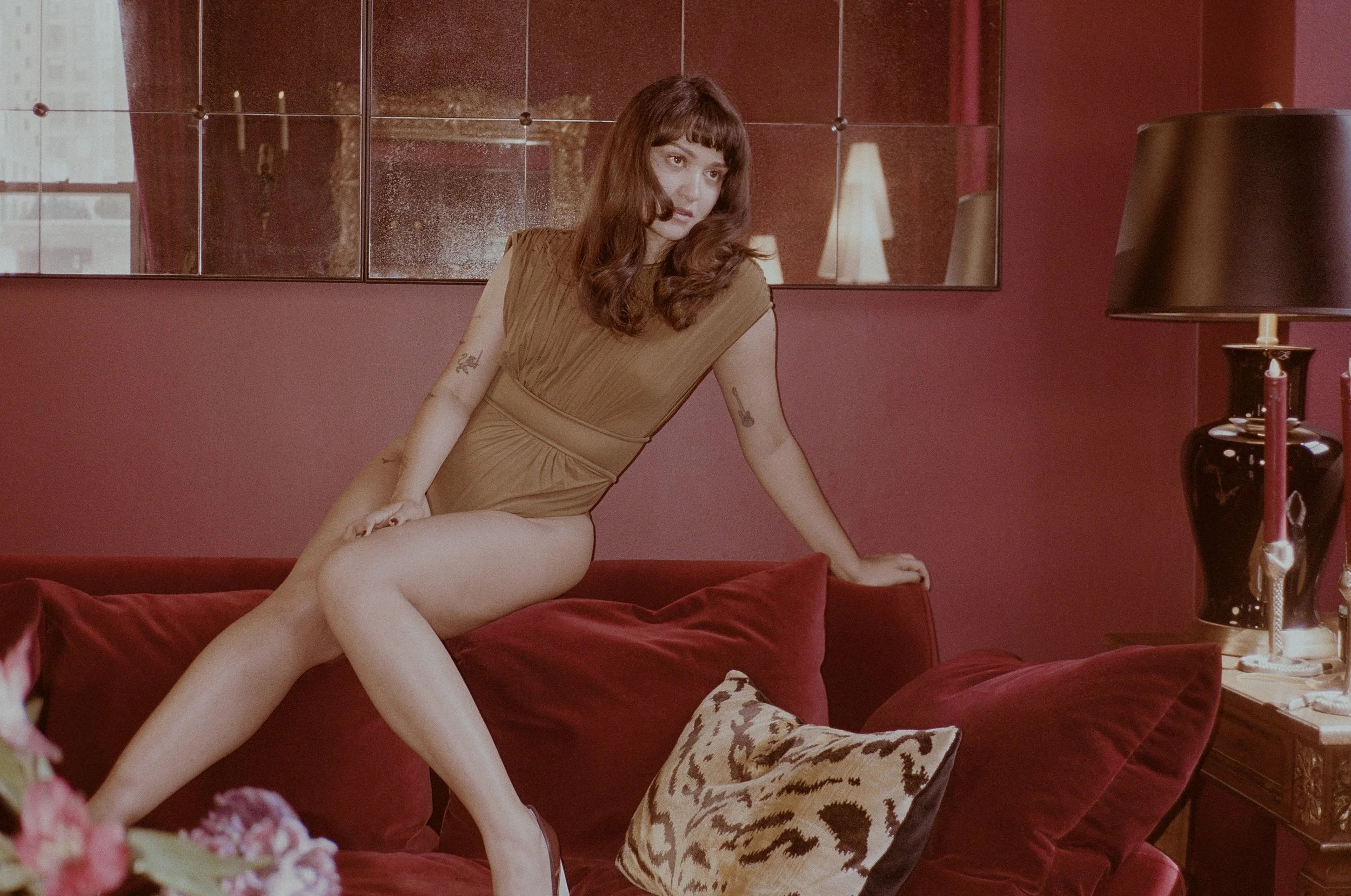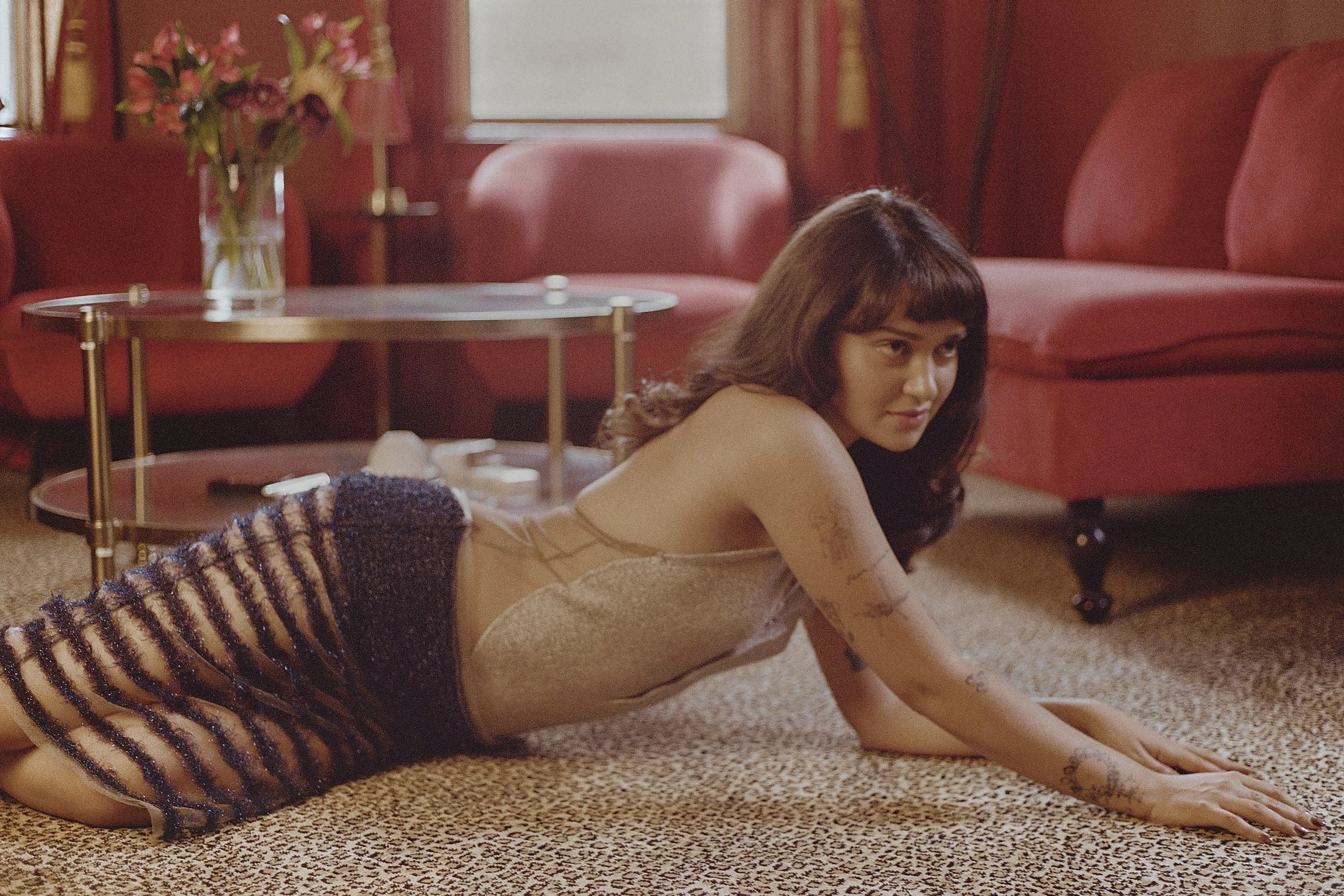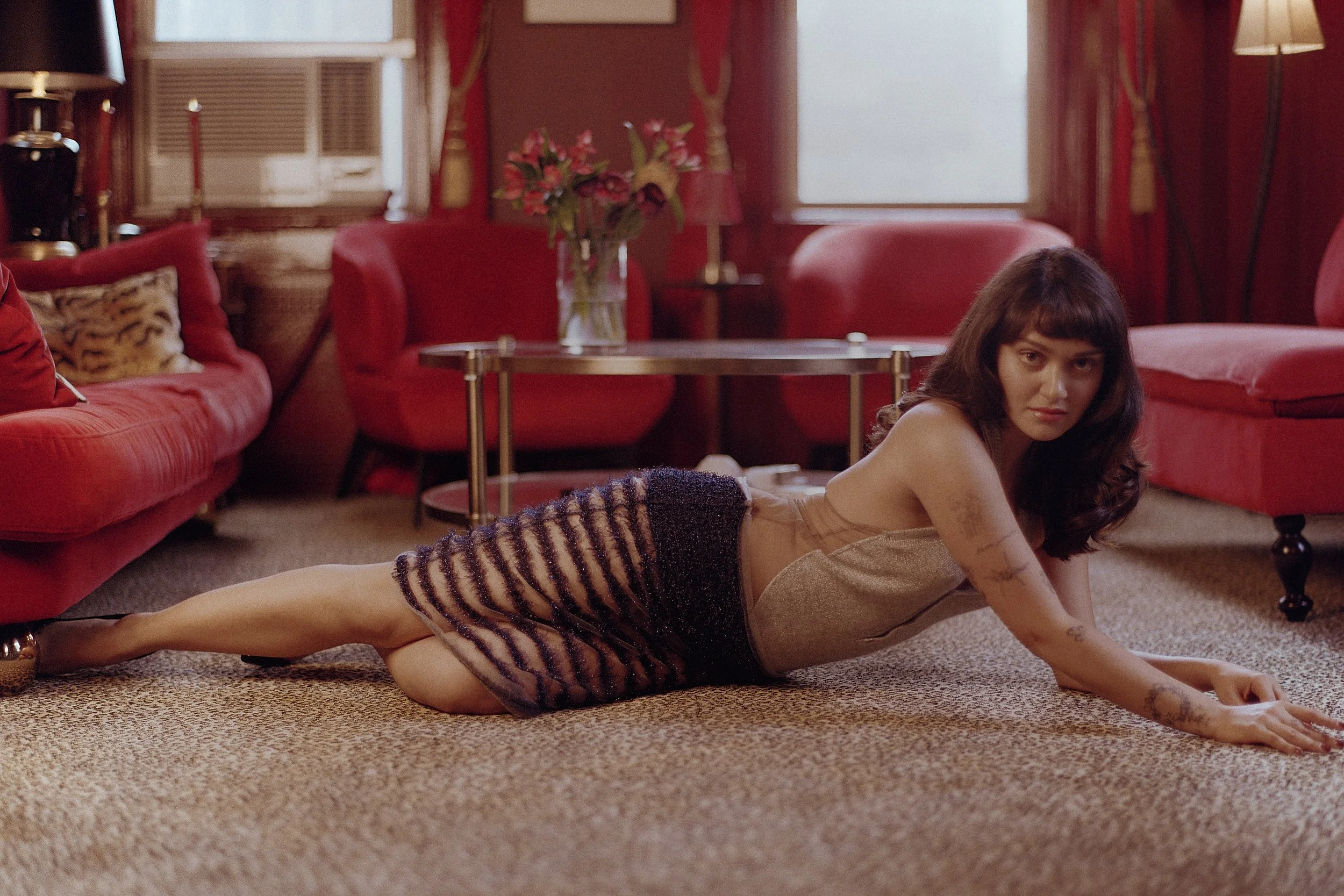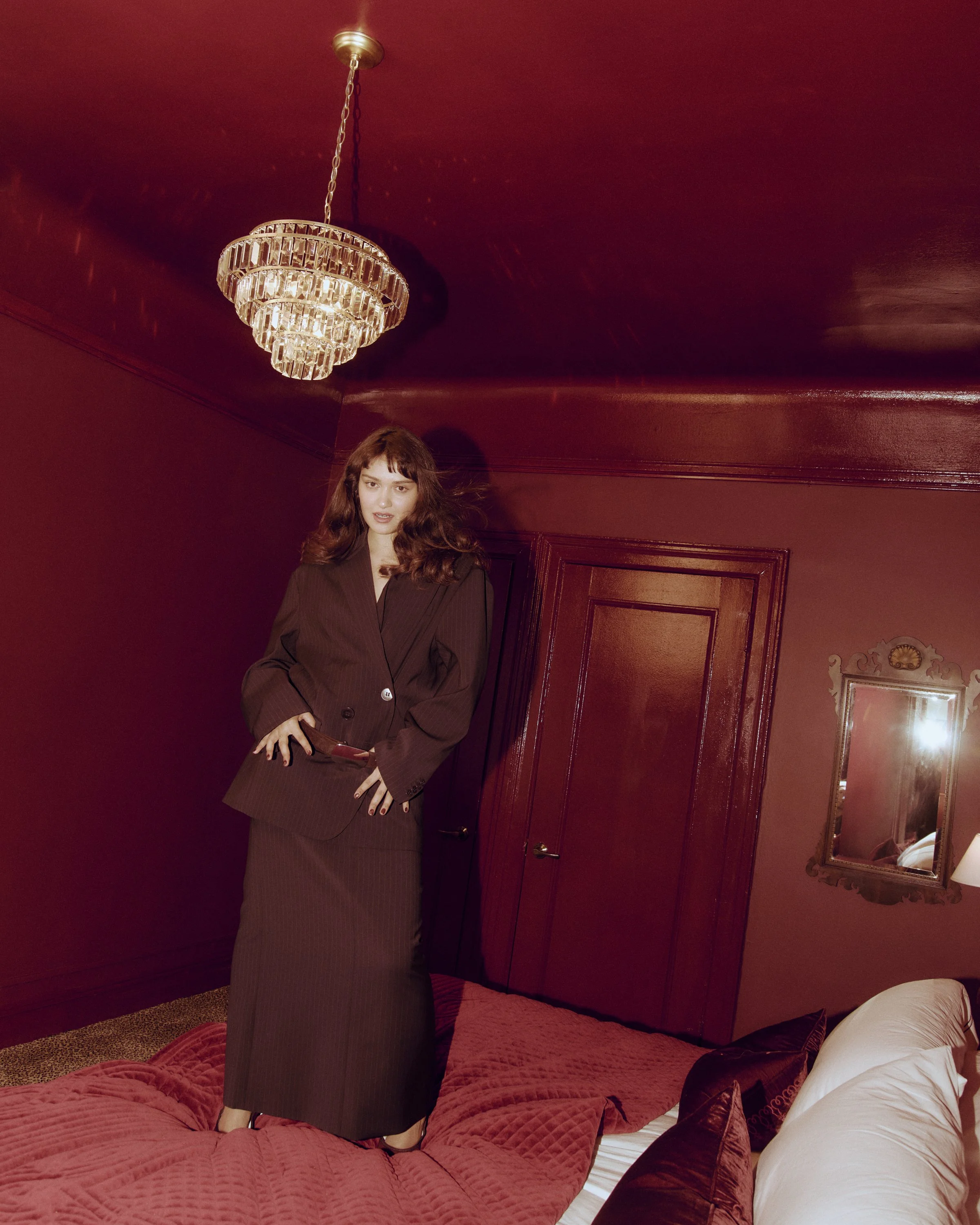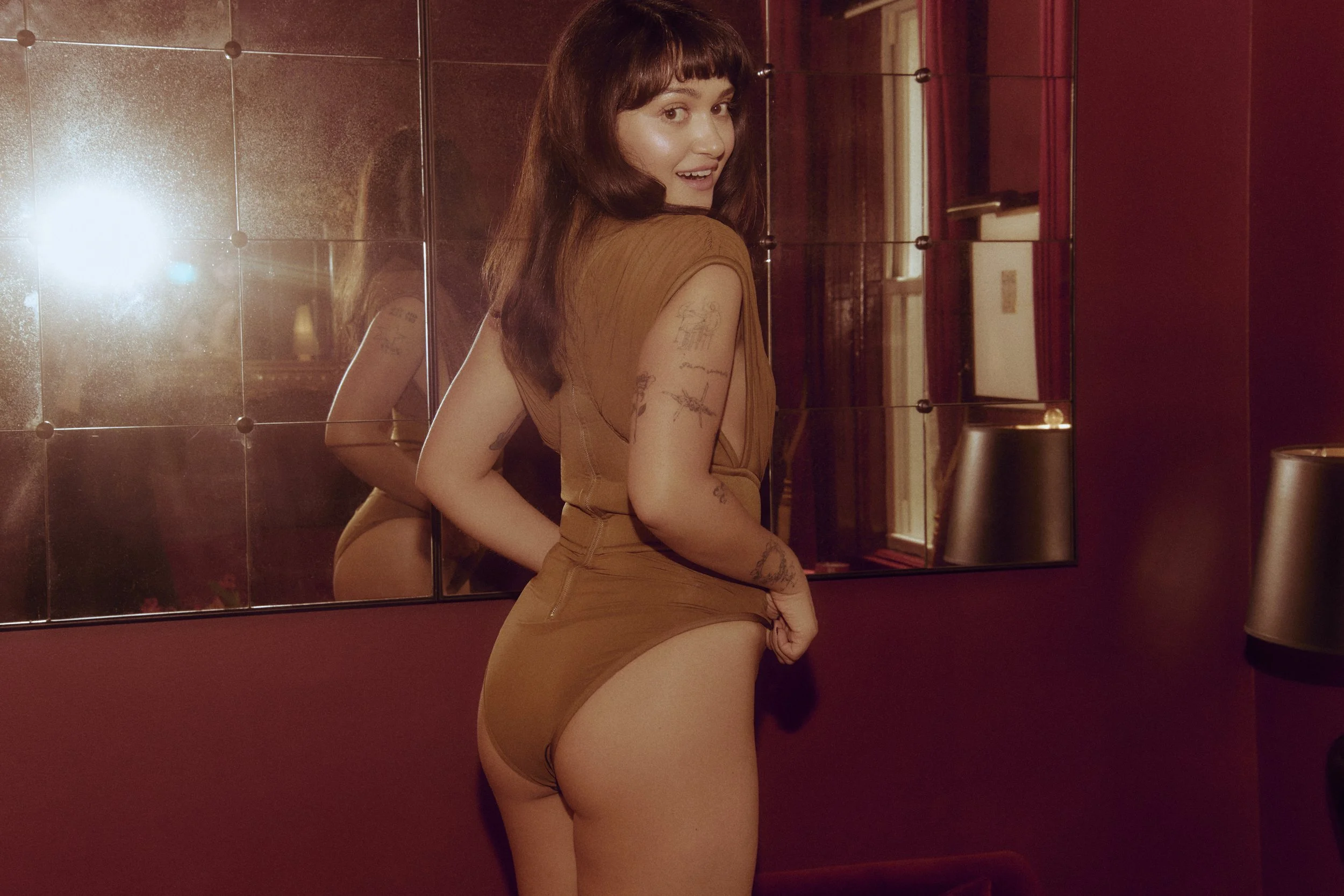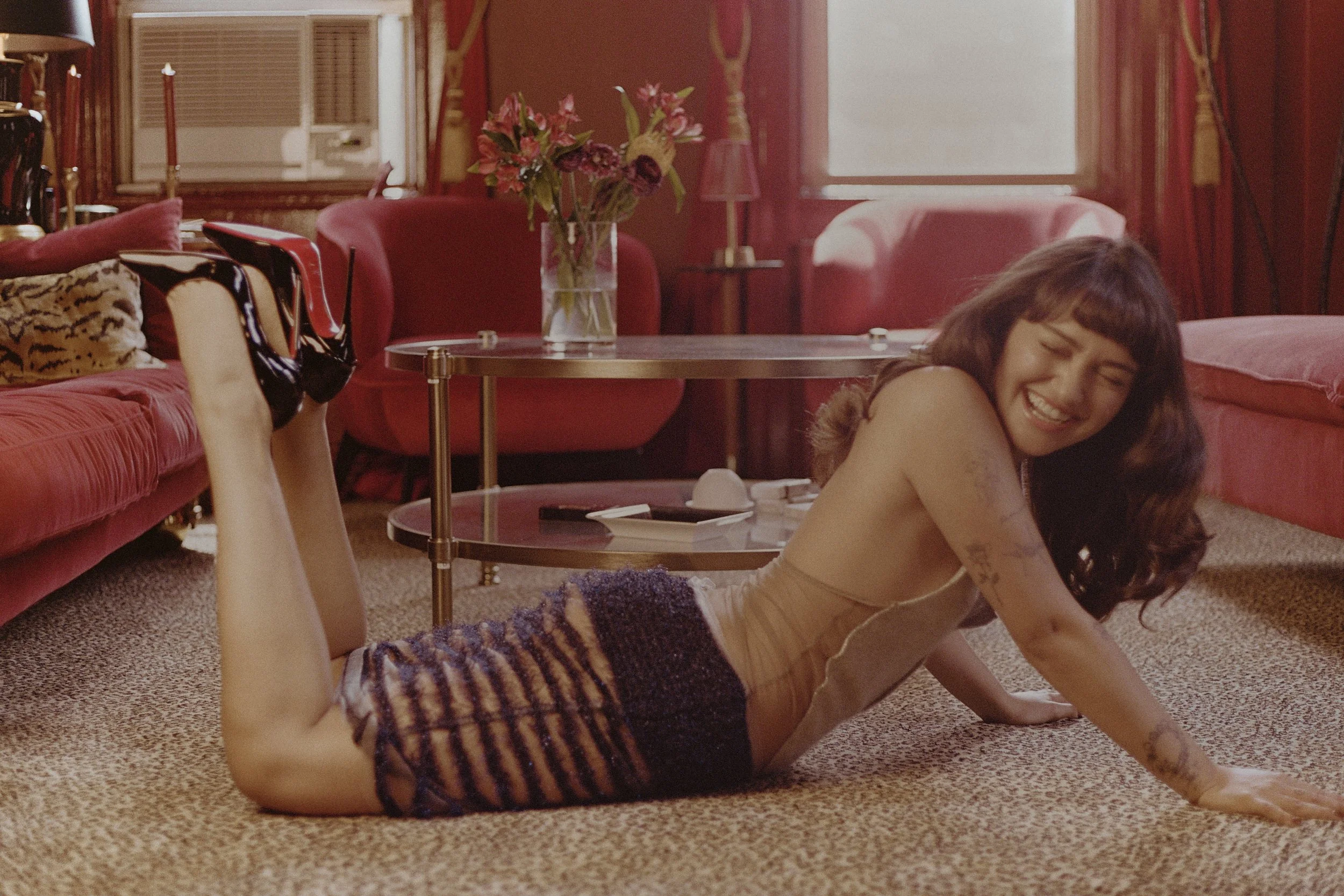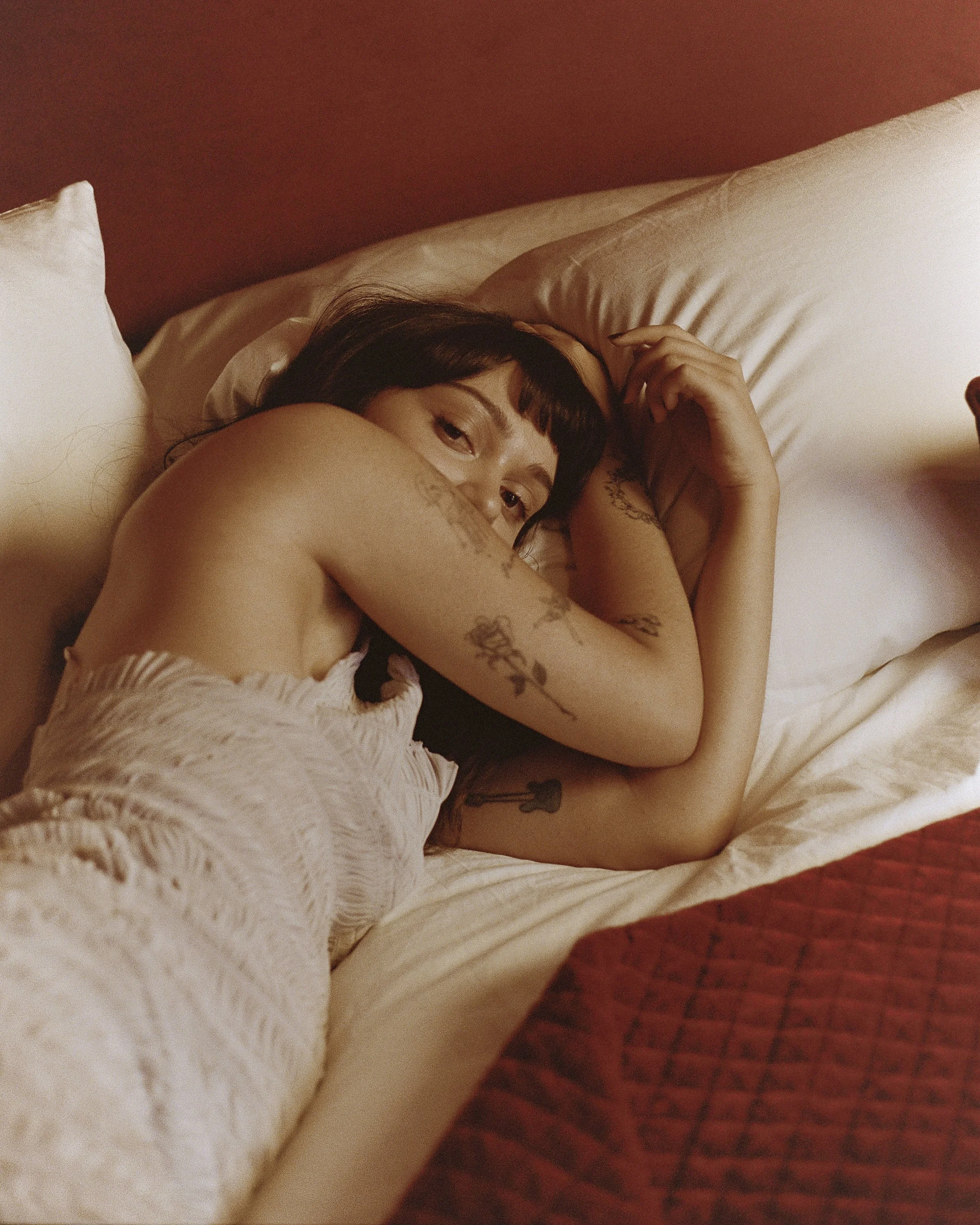Ariela Barer on The Last Of Us, Trojan Horses, and Learning Social Etiquette from Tumblr
Words: Rob Corsini | Photographer: Emma Craft | Photog assist: Ella Herman | Makeup: Bob Scott | Hair: Takayuki Umeda | Styling: Erik Ziemba | Videographer: Marie Koury
For Ariela Barer, it’s always the end of the world. Whether she’s playing a teen superhero stopping ritual sacrifices in Runaways; an activist turning to terrorist tactics in the face of environmental collapse in How to Blow Up a Pipeline; or a woman surviving zombie-infested blizzards in The Last of Us – there’s one constant, the stakes are high.
But even as the world is crashing down around her, Ariela’s characters choose to fight against pessimism – not only refusing to surrender to the violence of their circumstances, but refusing to participate in the brutality too. “I wouldn't necessarily consider myself a ‘Capital P Pacifist’, but I do think it's not naive or idealist to believe in the good of people,” Ariela says.
In The Last of Us (which wrapped Season 2 earlier this week) Ariela plays Mel - a doctor committed to saving lives, who is forced to navigate the realities of conflict and tribalism, all amidst a zombie apocalypse. For fans of the first series and of the video games, the two-year wait for new episodes has been excruciating, but it’s been even worse for Ariela – who booked the role in January 2024. “I've never had to be more patient,” she laughs.
In the series, climate change has caused the fictional Cordyceps fungus (inspired by the real-life Ophiocordyceps unilateralis or “zombie-ant fungus”) to mutate, infecting humans and turning them into zombies. In this way, The Last of Us is a parable about climate change - and Ariela’s past work has tackled this same existential threat in very different ways.
Dress: Ronny Kobo Shoes: Tory Burch
How To Blow Up a Pipeline, which Ariela co-wrote with Jordan Sjol and director Daniel Goldhaber, tells the story of a group of activists who come together to destroy an oil pipeline. The film is a modern-day heist movie, both exploring and revelling in the ways the group manages to make the explosions happen – but it’s also groundbreaking in the way that it explores the pursuit of radical environmental action completely without the use of metaphor.
The film provides a manifesto for why we should consider property destruction as a valid and ethical form of protest - and was lauded by critics, with The Guardian calling it a “lightning rod for the mounting anger of climate-conscious audiences”. But praise was never the main goal, impact was - and so Ariela’s committed to interrogating the film’s legacy.
“Being so explicitly political, does that limit the range of the message that you're trying to send?”
Jacket: Tory Burch Shoes: Tory Burch
Dress: Gauntlett Cheng
“Being so explicitly political, does that limit the range of the message that you're trying to send?” she asks. “In the past, when I've been more severe in my social interactions, I don't think I got through to people. When I was like ‘Why don't you get this?’ Instead of being like ‘Okay, let's talk about this’. I think it can very much alienate people from the things that I believe in.”
“The contradictions that exist within a teenage girl are just so amazing. You know what I mean?”
Ariela credits both her commitment to social justice and the fervour with which she delivered it to one website – Tumblr. Her dashboard was full of aesthetic photography, film screenshots and poems. “I think at the time I was like a pretty big fan of Quentin Tarantino,” she adds, laughing. “The contradictions that exist within a teenage girl are just so amazing. You know what I mean?” And alongside all of that, there were essays on culture and politics, written primarily by other young and engaged creatives.
Inextricability linked to those essays was the style in which they were written, a specific cadence and tone that’s become synonymous with Tumblr discourse. For Ariela, who left high school at the age of 14, that mode of communication became the blueprint for her own delivery. “I was not really socialising with my peers. So, I really learned so many of my social rules and what I believe to be social etiquette through the internet, which in some ways I am extremely grateful for,” she notes.
Top: Gauntlett Cheng Skirt: Gauntlett Cheng Shoes: Christian Louboutin
As she emerged into new environments, both professional and social, outside of the internet - she found that her ways of communicating didn’t always land. “I needed to learn how to behave a little bit,” she smiles, “I felt like an alien - and still do in so many ways.” Through reflecting on those interactions, she began to adapt her methods of discussion. “I think I've gotten a lot better at talking to people face to face about these issues - and having a lot more patience.”
Jacket: Tory Burch Shoes: Tory Burch
“I really learned so many of my social rules and what I believe to be social etiquette through the internet, which in some ways I am extremely grateful for.”
Top: Tibi Skirt: Tibi Belt: Tibi Shoes: Tory Burch
Just as Ariela examined her own ways of engaging people, she looked critically at the art she was creating. What she discovered was that there were many ways to get your point across, and that each was equally necessary and valid to create change with art.
“I think both things need to exist. The severe, militant, total lack of flexibility around your beliefs is extremely important, especially in social movements that are creeping steadily towards the right. I think it is really important to have those militant people standing their ground completely.”
Where How To Blow Up a Pipeline provided Ariela with the chance to demonstrate her most direct approach, The Last of Us and her upcoming projects will see her explore her politics in a more abstract way - with “Trojan Horse politics and speaking through metaphor,” she explains, “It’s part of the beauty and power of art.”
Bodysuit: Zimmerman Shoes: Tory Burch
“In terms of social causes, I think both things need to exist. The severe, militant, total lack of flexibility around your beliefs is extremely important, especially in social movements that are creeping steadily towards the right. I think it is really important to have those militant people standing their ground completely.” Whether they’ll take her to the end of the world again remains to be seen, but even if they do – Ariela will find wonder there, as she always does. “I imagine that beautiful things would exist past civilization as we know it. I’m someone who believes in life.”





